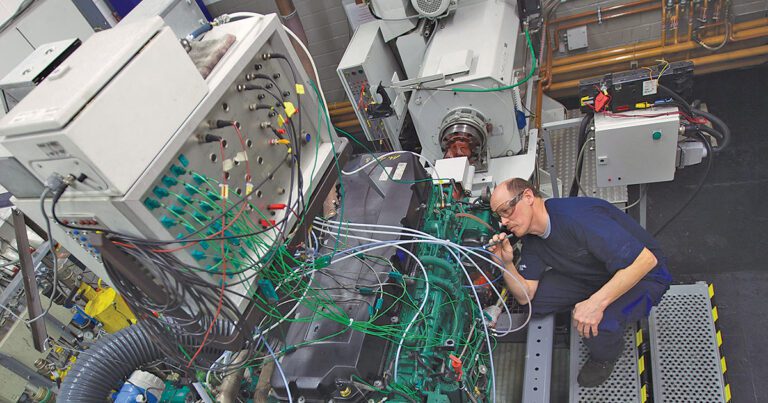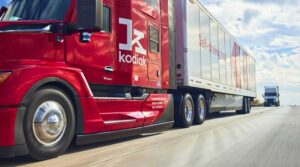NORTHVILLE, Mich. — Tenneco established new test facilities for hydrogen-powered internal combustion engines at its powertrain test centers in Burscheid, Germany, and Ann Arbor, Michigan.
The facilities are dedicated to hydrogen internal combustion engines (ICE) and enhance the company’s ICE testing capabilities.
“Using our knowledge about the influence of hydrogen on the combustion process and on the Powertrain Control Unit (PCU), we are able to address hydrogen-specific challenges like pre-ignition and H2-slip into the crankcase as well as the influence on tribology and materials,” Dr. Steffen Hoppe, Powertrain’s director technology rings and liners at Tenneco, said. “The R&D from our H2 test benches, along with support from our simulation tools like PRiME3D®, can accelerate the development process and help our customers go to market with highly efficient H2 combustion engines faster.”
Tenneco’s new H2 ICE test facilities provide a broad bandwidth of high-accuracy engine measurement capabilities, including:
- Light and heavy-duty engine testing up to 700kW.
- Eddy current and AC dyno.
- ECU connectivity, calibration and tuning.
- dynamic engine operation; driving cycles / engine in the loop.
- H2 supply up to 50bar and 90kg/h.
- H2 concentration measurement (exhaust and blow-by path).
- Combustion Analysis.
- Emissions testing for HC, CO, CO2, NOX, FSN.
- Gaseous emissions.
- Particulate number (PN) count / PN size distribution; Particulate Matter (PM).
- Radioactive tracer for oil emissions.
- In-line oil consumption and oil emission analysis.
- Automated fuel map testing.
- Ignition parameter evaluation.
- Thermal shock testing.
- Precise overall real-time engine monitoring.
“We support a pragmatic approach of complementary technologies that provide solutions for different transportation sectors,” Stefan Rittmann, vice president of engineering with Tenneco’s Powertrain business group, said. “We contend it’s not combustion-engine technology causing green-house gas emissions in the product-use phase; it is the fuel used in the ICE that defines the vehicle emissions. Therefore, green hydrogen, which is produced from renewable energies and carbon-free by nature, offers great potential for cleaner transportation, especially in sectors difficult to electrify, such as heavy-duty commercial vehicles, on- and off-highway applications, and the industrial and marine sectors.”
The Trucker News Staff produces engaging content for not only TheTrucker.com, but also The Trucker Newspaper, which has been serving the trucking industry for more than 30 years. With a focus on drivers, the Trucker News Staff aims to provide relevant, objective content pertaining to the trucking segment of the transportation industry. The Trucker News Staff is based in Little Rock, Arkansas.















